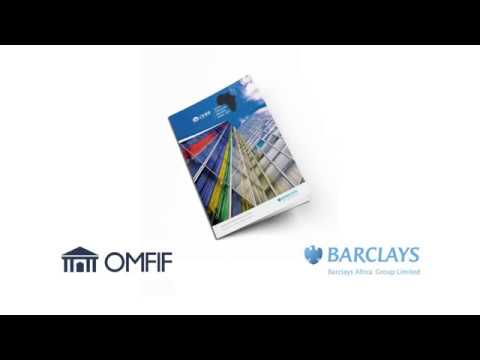Barclays Kenya launched the second edition of AFMI 2018 – the Absa Africa Financial Markets Index, revealing performance improvements at a time of economic turmoil on the continent and also the addition of new countries to the index that now tracks twenty African economies.
In the time since Barclays launched the initial Africa Financial Markets Index in 2017, they have seen good engagement from policymakers striving to improve their appeal to investors through the AFMI 2018 index which measures countries across six pillars of market depth, access to foreign exchange, market transparency/regulations, capacity of local investors, macroeconomic opportunity, and enforceability of legal agreements. This year, three new countries – Angola, Cameroon and Senegal joined the index bringing the countries tracked to 20 and the country measures were also tweaked to include elements of financial inclusions and levels of investor education
The AFMI 2018 was again topped by South Africa, the most advanced financial market in Africa, followed by Botswana, Kenya, Mauritius and Nigeria. Kenya, Morocco and Seychelles all improved in the rankings while Mauritius and Namibia slipped slightly. Nigeria was credited for improving in its administrative efficiency and tax reforms.
Jeremy Awori, Managing Director of Barclays Kenya said that emerging markets were under great pressure with currencies dropping, interest rates rising, political instability, falling commodities etc. and these highlighted how strong domestic financial markets could be used to cushion African economies from headwinds. He said that while Kenya topped the access to foreign exchange pillar of the index, and had improved in the enforcement of legal agreements, showing it was on a path to be a regional financial hub, there was still need to need to improve capacity of local investors, and grow the diversity of investor products. He added that Barclays Kenya was the first institution to list an ETF – an exchange-traded fund at the Nairobi Securities Exchange (NSE) and was also providing thought leadership on international swops and global master repurchase agreements.
Guests at the launch included Geoffrey Odundo, CEO of the NSE, and Paul Muthaura, CEO of Kenya’s Capital Markets Authority (CMA). Odundo said that while the 2006-08 IPO era unlocked retail investor capital, there was much more opportunity for investors to get good returns in the secondary markets including through REIT’s and that the NSE was currently piloting on offering derivatives. Muthaura spoke of initiatives to connect investors across African investors including a pilot exchange partnership between Kenya and Nigeria, and the African Securities Exchanges Association which was looking to enable trading links between the six largest exchanges on the continent.
Anthony Kirui, Head of Markets at Barclays Kenya said the country had an array of fixed income securities, but attention needed to shift to re-opening bonds as opposed to issuing new paper. He added that there was a need to create a primary dealership and a true OTC market and to also address the reluctance from local owners to list on stock markets. Muthaura said that one factor in the lack of new listings at the NSE was due to companies, who may have been candidates for listing to get new capital, now opting for the abundant and cheap funding from banks that were flush with cash in the era of interest rate caps
In East Africa, Uganda was stable (at No. 10) on the index while Rwanda and Tanzania dropped slightly, the former due to discrepancies in the implementation of rules and the latter due to lack of capacity of local investors. Ethiopia was at the tail end of the Index due to not having a security exchange and corporate bond markets, but that is likely to change as the country pursues reforms such as freeing the foreign currency exchange rate and planning for privatization of Ethiopian enterprises.
The AFMI 2018 report was done with the Official Monetary and Financial Institutions Forum (OMFIF) and can be downloaded from the Absa site.

